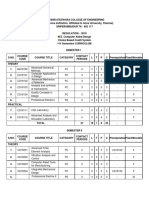100%(12)100% found this document useful (12 votes)
10K viewsTopics in Algebra Herstein
Topics in Algebra Herstein
Uploaded by
Viplov JainAlgebra
Copyright:
Attribution Non-Commercial (BY-NC)
Available Formats
Download as PDF or read online from Scribd
Topics in Algebra Herstein
Topics in Algebra Herstein
Uploaded by
Viplov Jain100%(12)100% found this document useful (12 votes)
10K views349 pagesAlgebra
Copyright
© Attribution Non-Commercial (BY-NC)
Available Formats
PDF or read online from Scribd
Share this document
Did you find this document useful?
Is this content inappropriate?
Algebra
Copyright:
Attribution Non-Commercial (BY-NC)
Available Formats
Download as PDF or read online from Scribd
Download as pdf
100%(12)100% found this document useful (12 votes)
10K views349 pagesTopics in Algebra Herstein
Topics in Algebra Herstein
Uploaded by
Viplov JainAlgebra
Copyright:
Attribution Non-Commercial (BY-NC)
Available Formats
Download as PDF or read online from Scribd
Download as pdf
You are on page 1of 349
TOPICS
IN
ALGEBRA
I. N. HERSTEIN
University of Chicago
GINN AND COMPANY
A Xerox Company
WALTHAM, MASSACHUSETTS - TORONTO - LONDON,
To
MARIANNE,
Copyright © 1964, by Ginn and Company
All Rights Reserved
LIBRARY OF CONGHESS CATALOG CARD NUMBER: 63-17082
Preface
‘The idea to write this book, and more important the desire to do so, is
4 direct outgrowth of a course I gave in the academic year 1959-1960 at
Cornell University. The class taking this course consisted, in large part,
of the most gifted sophomores in mathematics at Comell. It was my desire
to experiment by presenting to them material a little beyond that which
is usually taught in algebra at the junior-senior level,
Thave aimed this book to be, both in content and degree of sophisti-
cation, about halfway between two great classics, A Survey of Modern
Algebra by Birkhoff and MacLane and Modern Algebra by Van der
Waerden,
‘The last few years have seen marked changes in the instruction given
in mathematics at the American universities. This change is most notable
at the upper undergraduate and beginning graduate levels. Topics that a
few years ago were considered proper subject’ matter for semiadvanced
graduate courses in algebra have filtered down to, and are being taught
in, the very first course in abstract algebra. Convinced that this filtration
will continue and will become intensified in the next few years, I have
Put into this book, which is designed to be used as the student's first
introduction to algebra, material which hitherto has been considered =
little advanced for that stage of the game,
‘There is always a great danger when tresting abstract ideas to introduce
them too suddenly and without a sufficient base of examples to render them
credible or natural, In order to try to mitigate this, I have tried to motivate
the concepts beforehand and to illustrate them in concrete situations. One
of the most telling proofs of the worth of an abstract concept is what it,
and the results about it, tells us in familiar situations. In almost every
chapter an attempt is made to bring out the significance of the general
results by applying them to particular problems. For instance, in the
You might also like
- The Subtle Art of Not Giving a F*ck: A Counterintuitive Approach to Living a Good LifeFrom EverandThe Subtle Art of Not Giving a F*ck: A Counterintuitive Approach to Living a Good LifeRating: 4 out of 5 stars4/5 (6016)
- The Gifts of Imperfection: Let Go of Who You Think You're Supposed to Be and Embrace Who You AreFrom EverandThe Gifts of Imperfection: Let Go of Who You Think You're Supposed to Be and Embrace Who You AreRating: 4 out of 5 stars4/5 (1112)
- Never Split the Difference: Negotiating As If Your Life Depended On ItFrom EverandNever Split the Difference: Negotiating As If Your Life Depended On ItRating: 4.5 out of 5 stars4.5/5 (908)
- Grit: The Power of Passion and PerseveranceFrom EverandGrit: The Power of Passion and PerseveranceRating: 4 out of 5 stars4/5 (619)
- Hidden Figures: The American Dream and the Untold Story of the Black Women Mathematicians Who Helped Win the Space RaceFrom EverandHidden Figures: The American Dream and the Untold Story of the Black Women Mathematicians Who Helped Win the Space RaceRating: 4 out of 5 stars4/5 (937)
- Shoe Dog: A Memoir by the Creator of NikeFrom EverandShoe Dog: A Memoir by the Creator of NikeRating: 4.5 out of 5 stars4.5/5 (546)
- The Hard Thing About Hard Things: Building a Business When There Are No Easy AnswersFrom EverandThe Hard Thing About Hard Things: Building a Business When There Are No Easy AnswersRating: 4.5 out of 5 stars4.5/5 (358)
- Her Body and Other Parties: StoriesFrom EverandHer Body and Other Parties: StoriesRating: 4 out of 5 stars4/5 (831)
- Elon Musk: Tesla, SpaceX, and the Quest for a Fantastic FutureFrom EverandElon Musk: Tesla, SpaceX, and the Quest for a Fantastic FutureRating: 4.5 out of 5 stars4.5/5 (479)
- The Emperor of All Maladies: A Biography of CancerFrom EverandThe Emperor of All Maladies: A Biography of CancerRating: 4.5 out of 5 stars4.5/5 (275)
- The Little Book of Hygge: Danish Secrets to Happy LivingFrom EverandThe Little Book of Hygge: Danish Secrets to Happy LivingRating: 3.5 out of 5 stars3.5/5 (434)
- The World Is Flat 3.0: A Brief History of the Twenty-first CenturyFrom EverandThe World Is Flat 3.0: A Brief History of the Twenty-first CenturyRating: 3.5 out of 5 stars3.5/5 (2281)
- The Yellow House: A Memoir (2019 National Book Award Winner)From EverandThe Yellow House: A Memoir (2019 National Book Award Winner)Rating: 4 out of 5 stars4/5 (99)
- The Sympathizer: A Novel (Pulitzer Prize for Fiction)From EverandThe Sympathizer: A Novel (Pulitzer Prize for Fiction)Rating: 4.5 out of 5 stars4.5/5 (125)
- Devil in the Grove: Thurgood Marshall, the Groveland Boys, and the Dawn of a New AmericaFrom EverandDevil in the Grove: Thurgood Marshall, the Groveland Boys, and the Dawn of a New AmericaRating: 4.5 out of 5 stars4.5/5 (273)
- A Heartbreaking Work Of Staggering Genius: A Memoir Based on a True StoryFrom EverandA Heartbreaking Work Of Staggering Genius: A Memoir Based on a True StoryRating: 3.5 out of 5 stars3.5/5 (232)
- Team of Rivals: The Political Genius of Abraham LincolnFrom EverandTeam of Rivals: The Political Genius of Abraham LincolnRating: 4.5 out of 5 stars4.5/5 (235)
- On Fire: The (Burning) Case for a Green New DealFrom EverandOn Fire: The (Burning) Case for a Green New DealRating: 4 out of 5 stars4/5 (75)
- The Unwinding: An Inner History of the New AmericaFrom EverandThe Unwinding: An Inner History of the New AmericaRating: 4 out of 5 stars4/5 (45)
- 1 - The Levers of The Human BodyDocument25 pages1 - The Levers of The Human Bodybreinfout fotosNo ratings yet
- PDF Electric Circuits 10th Ed 10th Edition James W. Nilsson DownloadDocument84 pagesPDF Electric Circuits 10th Ed 10th Edition James W. Nilsson Downloadterzanliliya6067% (3)
- RMO Mock Test: ProblemsDocument1 pageRMO Mock Test: ProblemsSatyankar ChandraNo ratings yet
- MathematicsDocument7 pagesMathematicsVaibhav NegiNo ratings yet
- CEAT GE121 CURAG Module2Document11 pagesCEAT GE121 CURAG Module2ivymacalma09No ratings yet
- 2009 Jan P1 MSDocument11 pages2009 Jan P1 MSANLIN ANGELNo ratings yet
- PID Theory Explained, Komplett PDFDocument5 pagesPID Theory Explained, Komplett PDFThierry BaudorreNo ratings yet
- Math 100 Module 2Document6 pagesMath 100 Module 2Jonwille Mark CastroNo ratings yet
- 6.02 Fall 2012 Lecture #12: - Bounded-Input, Bounded-Output Stability - Frequency ResponseDocument16 pages6.02 Fall 2012 Lecture #12: - Bounded-Input, Bounded-Output Stability - Frequency ResponseKarthik KichuNo ratings yet
- Mollier Psychrometric ChartDocument13 pagesMollier Psychrometric ChartSimoneSisouDugariaNo ratings yet
- Statistical Analysis - Prelim Module 2 and PS P2Document17 pagesStatistical Analysis - Prelim Module 2 and PS P2Ivan Nikolai B. BasianaNo ratings yet
- Study Guide For STA3701Document325 pagesStudy Guide For STA3701leratobaloyi386No ratings yet
- MYP 3 Criterion B-RustingDocument5 pagesMYP 3 Criterion B-Rustingwama ojha67% (3)
- Donnay - Spherical Trigonometry 1945Document107 pagesDonnay - Spherical Trigonometry 1945David Royster100% (1)
- PGCDR18Document68 pagesPGCDR18Santosh PapleNo ratings yet
- Market Sentiment and Stock Market Volatility: Evidence From Tehran Stock ExchangeDocument21 pagesMarket Sentiment and Stock Market Volatility: Evidence From Tehran Stock Exchangerenuka sharmaNo ratings yet
- Vector Analysis Question BankDocument2 pagesVector Analysis Question BankSharan RarhiNo ratings yet
- MechanicsDocument13 pagesMechanicsShreyas JadhavNo ratings yet
- Developing Mathematical Problem Solving Skills With Interactive Problem Based Learning and Discovery LearningDocument10 pagesDeveloping Mathematical Problem Solving Skills With Interactive Problem Based Learning and Discovery LearningHanafi AsnanNo ratings yet
- Physics: Principles and Applications, 6e Giancoli Chapter 1 Introduction, Measurement, EstimatingDocument7 pagesPhysics: Principles and Applications, 6e Giancoli Chapter 1 Introduction, Measurement, EstimatingDURU ALTINKAYANo ratings yet
- FACULTY NAME:S.Chitra Class: Iv Year Ece B: Department of Electronics and Communication EngineeringDocument3 pagesFACULTY NAME:S.Chitra Class: Iv Year Ece B: Department of Electronics and Communication EngineeringKevin PennyNo ratings yet
- Alan Turing PowerpointDocument10 pagesAlan Turing PowerpointbigmanjenkinzzNo ratings yet
- Orthogonal Trajectories in Cartesian CoordinatesDocument35 pagesOrthogonal Trajectories in Cartesian CoordinatesWASEEM_AKHTER100% (1)
- Practice 1 PDFDocument4 pagesPractice 1 PDFNataliAmiranashviliNo ratings yet
- Undecidability & Intractable Problems - : Sunday, April 10, 2022 1Document65 pagesUndecidability & Intractable Problems - : Sunday, April 10, 2022 1Karode GaneshNo ratings yet
- Bending Stress 04Document18 pagesBending Stress 04Danielle Ruthie GalitNo ratings yet
- Roller Coasters Need Calculus Too! PDFDocument6 pagesRoller Coasters Need Calculus Too! PDFRahmawatiNurAiniNo ratings yet
- Resultants, Discriminants, Bezout, Nullstellensatz, EtcDocument11 pagesResultants, Discriminants, Bezout, Nullstellensatz, EtcPatofnaPatofnicNo ratings yet
- Xin Sun: Education Massachusetts Institute of TechnologyDocument4 pagesXin Sun: Education Massachusetts Institute of TechnologyUtkarsh chaurasiaNo ratings yet
- Leinhardt Et Al 1986 The Cognitive Skill of TeachingDocument21 pagesLeinhardt Et Al 1986 The Cognitive Skill of Teachingapi-264671444100% (1)






































































